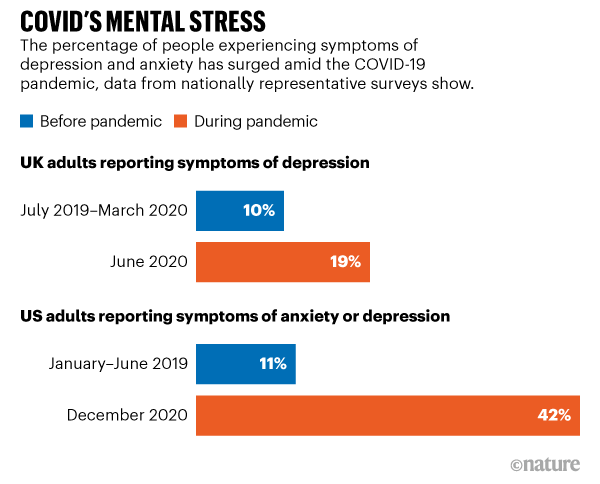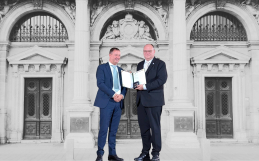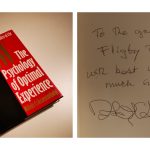How to Thrive in VUCA World: Cultivate Flow
VUCA: is managing chaos our new normal? Can we rise to the challenge of new realities we crashed into it with the pandemic? Is thriving in a world full of volatility, uncertainty, complexity, and ambiguity even possible?
Life is VUCA
VUCA, a term originating in the leadership theories of Bennis and Nanus and popularized by the US military around the year 2000 to describe the new realities at the time, stands for Volatility, Uncertainty, Complexity, and Ambiguity. Today life is VUCA in all its aspects. From wearing masks and vaccines to working from home and severe burnout, from climate crisis to social unrest, recent examples of rapid, unpredictable, frequent, and significant change have made it challenging to prepare, problem-solve, and make decisions without compromise. Many pre-existing problems have been exacerbated, and as we have put off dealing with them, we are now returning to having to make more decisions than ever.
“Problems cannot be solved with the same mindset that created them.” – Albert Einstein
The pressure of rapid decision-making and the need for constant optimizing continue to put incredible demands on our attention, often leading to burnout. We are told that uncertainty creates cognitive overload and stress can harm our health. Throughout the pandemic, no one was sure what stage we were in or how to feel about it. Managing high volatility and ambiguity has put us into a different mindset. To thrive in this VUCA environment, we must learn to love change, master the paradox, and become highly flexible, agile, and resilient.
Post-pandemic resilience is about taking a “yes and” stance to a life full of volatility, uncertainty, complexity, and ambiguity. As we accept our ever-changing circumstances, we must simultaneously focus on creating alternate options to restore our sense of agency. This different lens can provide us with much-needed relief from the overwhelm. As uncertainty and volatility continue, flexibility will remain vital to thriving in today’s VUCA world. True resilience, after all, is about more than just being able to bounce back; it implies that we emerge more robust because of the experience.
Flow, the most adaptive response to VUCA world
One sound approach to cultivating resilience and responding constructively to the chaos created by VUCA conditions points to the cultivation of the mental state of Flow. In his book Flow: The Psychology of Optimal Experience, professor Mihaly Csikszentmihalyi explains that in Flow, we operate at our best, we are challenged to the top of our skillset, but in the end, emerge more potent as a result of the experience. Because Flow is a complex psychic event that mobilizes all our cognitive, technical, and performance skills in whatever domain we operate, we become so engaged in the problem and the task at hand that we can sense the slightest imbalance in our environment, a crucial skill in the VUCA world.
“In Flow, a person is challenged to do her best and must constantly improve her skills.” – Prof. Csikszentmihalyi
Flow pulls us out of fear and worries about an uncertain future because it demands that we focus on what we need to solve for and engage with. When we work on controlling our attention this way, we feel we have more control over our lives. Flow could become an effective coping strategy when overwhelmed by ambiguity because the conditions necessary to experience flow include a sense of control. The eight conditions needed for the experience of Flow, and at the same time, valuable resources for thriving in VUCA reality, include intrinsic motivation, clarity of goals, sense of control, frequent feedback, the balance between challenge and skills, focused attention, and finally merging of action and awareness that leads to loss of self-consciousness and altered perception of time.
Mental stress in the Covid age
Flow, as a solution for thriving in the VUCA world, has the potential to inoculate us against inevitable setbacks. The pandemic has given us a lot of valuable research that showed the effectiveness of cultivating flow under challenging circumstances. During many studies aimed to measure the detrimental effects of isolation and uncertainty on mental and emotional health, others focused on the solutions to help prevent this decline. Despite reports showing that rates of depression and anxiety symptoms have doubled and even quadrupled in some locations across the globe since 2019, it would be fair to say that focusing only on correcting the problem is a luxury we cannot afford in 2021.

Sweeny and colleagues found that meaningful activities, particularly those that generated Flow states, were far more predictive of greater resilience to stress caused by the pandemic. Participants who reported frequently engaging in Flow-inducing activities showed little or no well-being decline because Flow appeared to moderate the link between quarantine length and well-being.
If experiencing Flow could protect individuals from the potentially detrimental effects of isolation, what are its implications for the post-pandemic world? More than forty years of psychological research into the mental state of Flow has frequently associated this one-of-a-kind experience with well-being, improved mental health, and life satisfaction because it allows us to transform stress into something positive.
Flow is the ultimate eustress experience.
Not all stress is experienced as harmful, and not all stress makes for a negative experience. Cultivating Flow brings on a sense of satisfaction when raising challenges because the state of Flow embodies a positive response to stress, also known as eustress. When we are fully present and focused on the task, away from being caught up by our internal states, eustress brings exhilaration. Øystein Saksvik, in his literature review on constructive stress, argues that good stress is necessary for performance, both on the individual and the collective level. Stress, in general, must be present in our lives as a motivator. The key is to:
- understand the difference between stress that is destructive versus constructive
- be able to live with both (because we need challenges and counterforces to progress, master hardships, and develop perseverance), and
- learn to shift one’s perspective from a negative to a positive, both as an individual and within an organization.
The making of meaning
How we respond to challenges and stress makes all the difference. Dr. Kelly McGonigal of Stanford University argues that people are less motivated by trying to avoid stress than by harnessing it toward meaningful ends and seeing it as an opportunity to rise to the occasion. Flow teaches us to get comfortable conquering challenges, big and small.
Most effective and widely available forms of promoting Flow are visible in those work environments that provide opportunities for enjoyment that comes from doing one’s best, “environments with a soul where work can be Flow,” as Csikszentmihalyi describes in his 2004 book entitled Good Business: Leadership, Flow, and the Making of Meaning. Our organizations shape our identities. Systems that tend toward complexity and enterprises that allow for continuous learning provide their members with work that matters for people, work that count, and work where people care about each other. As Cal Newport explains:
“Burnout is not caused by too much work but instead by too little work that is meaningful.” – Cal Newport
What better way to cultivate Flow than to become an expert in Flow-driven leadership? The best way to learn about Flow and develop skills necessary to combat the obstacles created by VUCA can be found in experiential learning programs that focus specifically on ways to promote Flow and develop VUCA-world competencies of embracing and balancing risk, experimentation, self-awareness, ability to learn on the fly, and ruthless prioritization.
How to promote flow and VUCA-world competencies
On the individual level, effective experiential learning is about extracting knowledge from every experience. It requires that participants maintain a bias toward learning in the face of pressure and reflect on the background throughout. The most effective training environments for today’s VUCA challenges are large-scale and highly realistic business simulations. All interactions are recorded, and results are reviewed with trained experts, ideally in a blended learning setup. Business simulations allow leaders and emerging leaders to practice decision-making in unusual, challenging, and complex situations.
Born in Need: Bringing Online Leadership Development to the Next Level
Unlike our VUCA reality, we can experiment and fail safely in a good business simulation. Virtual leadership simulation games like FLIGBY allow us to practice dealing with emergencies and significant decisions in a low-stress virtual environment until we acquire all the competencies that make a good leader through identifying, assessing, and mitigating risk. They also provide individualized feedback on leadership skills relevant to VUCA reality. One such tool is the VUCA report generated by FLIGBY 2.0, which addresses competencies we must develop to thrive in chaos characteristic of today’s organizational climate. To learn more about effectively assessing VUCA skills, read our next article, “Is Your Organization VUCA-ready?”
Cultivating the mental state of Flow to inoculate us against the adverse effects of prolonged stress allows us to address the problem while developing positive and life-giving. Transforming work and everyday activities into more Flow-like experiences has, in the words of professor Csikszentmihalyi, the potential to make every day more rich, intense, and meaningful and any act more rewarding. Promoting Flow can help industries and individuals thrive, lead more confidently, and succeed even in uncertain times.
References:
- Bailon, C., Goicoechea, C., Banos, O., Damas, M., Pomares, H., Correa, A., … & Perakakis, P. (2020). CoVidAffect, real-time monitoring of mood variations following the COVID-19 outbreak in Spain. Scientific Data, 7(1), 1-10.
- Bennis, W., & Nanus, B. (1985). The strategies for taking charge. Leaders, New York: Harper. Row, 41.
- Colvin, G. (2016). Humans are underrated: What high achievers know that brilliant machines never will. Penguin.
- Csikszentmihalyi, M. (1975). Beyond boredom and anxiety: The experience of play in work and games. San Francisco, CA: Jossey-Bass.
- Csikszentmihalyi, M. (1990). Flow: The psychology of optimal experience. New York: Harper & Row.
- Csikszentmihalyi, M. (2004). Good Business: Leadership, Flow, and the Making of Meaning. New York, NY: Penguin.
- Csikszentmihalyi, M. (2020). Finding flow: The psychology of engagement with everyday life. Hachette UK.
- Marer, P., Buzady, Z. & Vecsey, Z. (2017). Missing Link Discovered. ALEAS Sims, California (Publisher)
- Newport, C. (2016). Deep work: Rules for focused success in a distracted world. Hachette UK.
- Peters, T. Thriving on Chaos (1987). (p. 561). New York: Knopf.
- Peters, A., McEwen, B. S., & Friston, K. (2017). Uncertainty and stress: Why it causes diseases and how it is mastered by the brain. Progress in neurobiology, 156, 164-188.
- Saksvik, P. Ø. (2017). Constructive Stress. In The Positive Side of Occupational Health Psychology (pp. 91-98). Springer, Cham.
- Sweeny, K., Rankin, K., Cheng, X., Hou, L., Long, F., Meng, Y., … & Zhang, W. (2020). Flow in the Time of COVID-19: Findings from China.
- Stiehm, Judith Hicks; Nicholas W. Townsend (2002). The U.S. Army War College: Military Education in a Democracy. Temple University Press. p.6.
- Vahratian A, Blumberg SJ, Terlizzi EP, Schiller JS. Symptoms of Anxiety or Depressive Disorder and Use of Mental Health Care Among Adults During the COVID-19 Pandemic – United States, August 2020-February 2021. MMWR Morb Mortal Wkly Rep. 2021 Apr 2;70(13):490-494. doi: 10.15585/mmwr.mm7013e2. PMID: 33793459; PMCID: PMC8022876.





